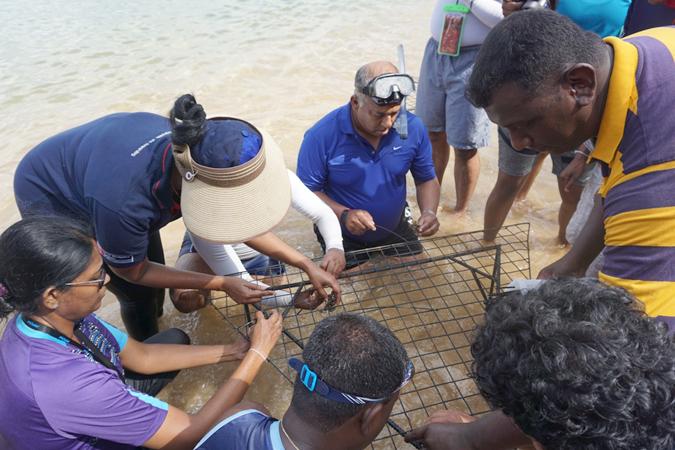
‘Life to Reef’ is one of the key sustainability projects of Diesel & Motor Engineering PLC (DIMO), to protect and restore the coral reefs in the Bonavista Reef at Rumassala near Galle.
DIMO is replenishing and restoring corals which are rapidly becoming an endangered variety of marine species.
Chairman and Managing Director, DIMO, Ranjith Pandithage said, “Coral reefs play a significant role in maintaining a balanced marine ecosystem and protecting coastlines. Conservation and the sustainable use of oceans, seas and marine resources are not only a global mandate declared by UN SDGs, but have been identified as one of our national biodiversity priorities. As a responsible corporate in Sri Lanka we believe it is our prime duty to take such an initiative in environmental conservation for the betterment of our planet and mankind.”
“The project is aligned with our mission in uplifting the living standards of people and providing economic stability. We have successfully contributed in making a positive impact to society and the environment,” he said.
The program attracted 112 volunteers from cross-functional departments of DIMO, recording 739 volunteer hours. The volunteers contributed towards the project in different capacities such as divers, snorkelers, swimmers and underwater photographers.
Group CEO, DIMO, Gahanath Pandithage said, “Volunteering and helping others is beneficial for employees to be mentally stimulated and providing a sense of purpose. This project inculcated positive attitudes among our staff as they realise they contributed to ensure the future of the reef and rebuilding a community.”
The ‘Life to Reef’ initiative includes methods of coral restoration, which were experimented and found to be successful by Wildlife and Ocean Resource Conservation. The latter coral restoration techniques included planting corals on cement structures, metal frames and nursery racks which have been deposited by divers at the bottom of the sea.
The first phase of the project which began in 2017 installed on the reef, followed by the second phase in 2018. The Company planted more than 1,000 coral nubbins covering the area in both phases.
